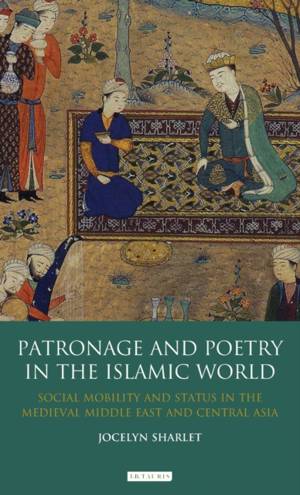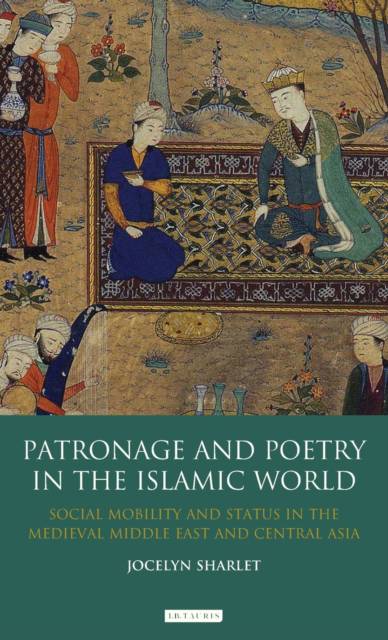
- Afhalen na 1 uur in een winkel met voorraad
- Gratis thuislevering in België vanaf € 30
- Ruim aanbod met 7 miljoen producten
- Afhalen na 1 uur in een winkel met voorraad
- Gratis thuislevering in België vanaf € 30
- Ruim aanbod met 7 miljoen producten
Zoeken
Patronage and Poetry in the Islamic World
Social Mobility and Status in the Medieval Middle East and Central Asia
Jocelyn Sharlet
€ 296,95
+ 593 punten
Omschrijving
Panegyric poetry, in both Arabic and Persian, was one of the most important genres of literature in the medieval Middle East and Central Asia. Jocelyn Sharlet argues that panegyric poetry is important not only because it provides a commentary on society and culture in the medieval Middle East, but also because panegyric writing was one of the key means for individuals to gain social mobility and standing during this period. This is particularly so within the context of patronage, a central feature of social order during these times. Sharlet places the medieval Arabic and Persian panegyric firmly within its cultural context, and identifies it as a crucial way of gaining entry to and movement within this patronage network. This is an important contribution to the fields of pre-modern Middle Eastern and Central Asian literature and culture.
Specificaties
Betrokkenen
- Auteur(s):
- Uitgeverij:
Inhoud
- Aantal bladzijden:
- 336
- Taal:
- Engels
- Reeks:
- Reeksnummer:
- nr. 24
Eigenschappen
- Productcode (EAN):
- 9781848853690
- Verschijningsdatum:
- 13/06/2011
- Uitvoering:
- Hardcover
- Formaat:
- Genaaid
- Afmetingen:
- 145 mm x 218 mm
- Gewicht:
- 566 g

Alleen bij Standaard Boekhandel
+ 593 punten op je klantenkaart van Standaard Boekhandel
Beoordelingen
We publiceren alleen reviews die voldoen aan de voorwaarden voor reviews. Bekijk onze voorwaarden voor reviews.











